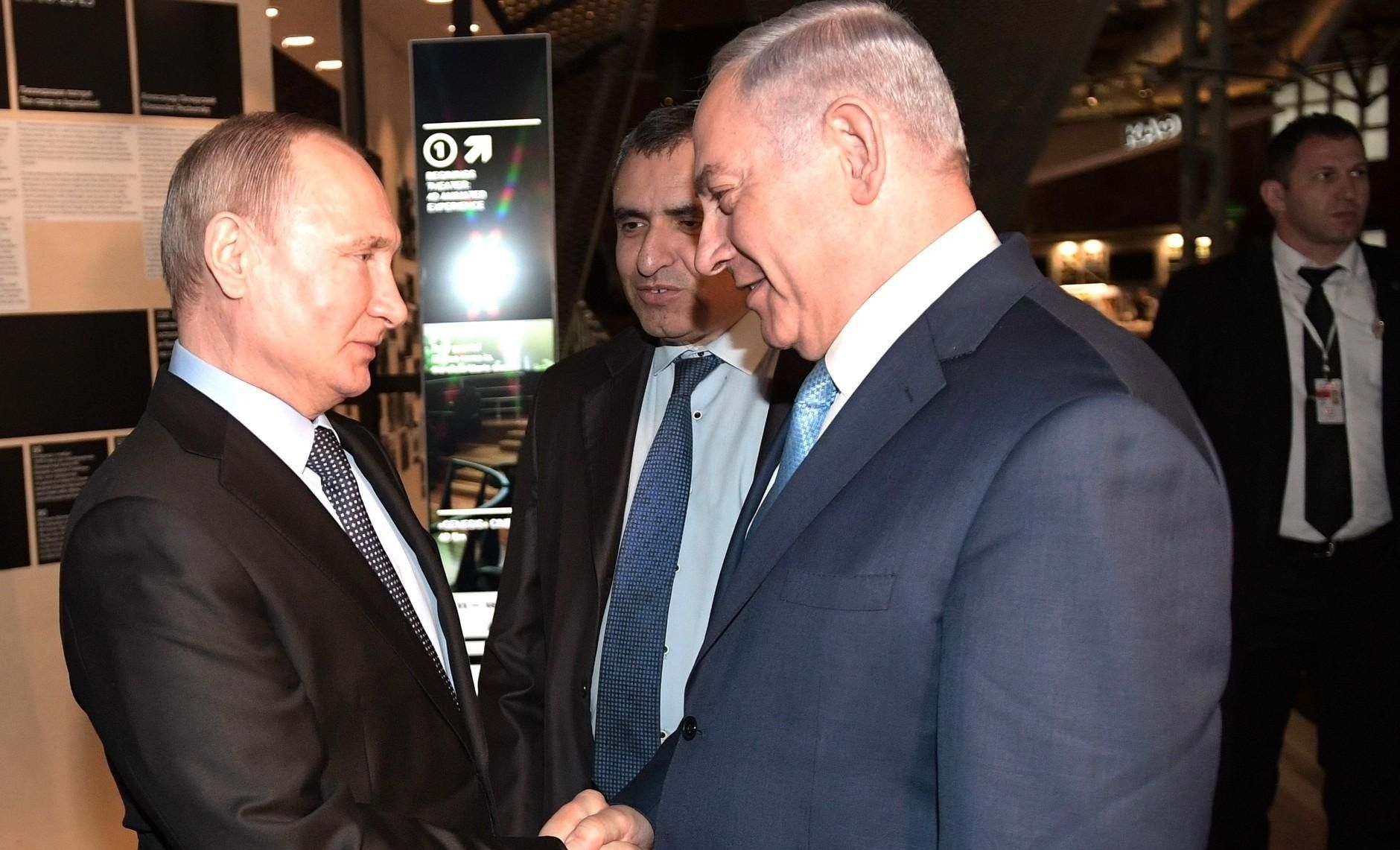Russian-Israeli relations deteriorated sharply in the wake of the October 7 Hamas attack on Israel and the subsequent Israeli intervention in Gaza. Yet Israeli Prime Minister Benjamin Netanyahu has just asked Russian President Vladimir Putin to seek the release of Israeli hostages being held by Hamas in Gaza — and Putin has responded positively.
Russian-Israeli cooperation had grown in a number of spheres after Putin first came to power at the turn of the century. One of the most spectacular examples has been the “secret” but well-known deconfliction agreement between Russia and Israel whereby Russian forces have largely turned a blind eye to Israeli attacks on Iranian and Hezbollah positions in Syria. Israeli commentators have pointed to Israel’s need to preserve this agreement and desire to protect the remaining Jewish community inside Russia as reasons why Israel would not join America and the West in providing military assistance to Ukraine or sanctioning Russia.
But while Israeli leaders went out of their way to avoid undertaking actions against Russia after Putin intervened in Ukraine beginning in February 2022, Russian leaders did not reciprocate when Israel intervened in Gaza beginning in October 2023. In addition to blaming the conflict on American foreign policy, Putin and other Russian leaders were highly critical of Israel’s intervention, called for a ceasefire (something which Netanyahu is dead set against), and were slow to criticize Hamas’s October 7 attack. Israeli officials and commentators have vociferously expressed their dissatisfaction with Moscow’s position on the Gaza conflict.
Nevertheless, some degree of Russian-Israeli cooperation continues. On December 24, Putin and Netanyahu held an hour-long telephone conversation. Netanyahu later said that he asked for Russian help in obtaining the release of Israeli hostages being held by Hamas in Gaza. And Putin responded positively, appointing Russian Deputy Foreign Minister Mikhail Bogdanov to work on this matter. Bogdanov has reportedly held phone calls with Hamas and other Palestinian leaders. He has also demanded the release of Israeli hostages.
Considering both the extremely poor state of Russian-American relations, as well as President Biden’s strong support for Israel throughout his career and especially since Hamas’s October 7 attack, the Israeli leader’s request for Russian support might appear to be slighting Biden. In fact, though, Netanyahu’s turning to Putin for help getting hostages released may simply be pragmatic. Since Russia has good working relations with Hamas while the U.S. does not, then Netanyahu would understandably see Moscow as having a better chance of securing a hostage release than does Washington.
For Putin to respond positively to Netanyahu’s request is also highly pragmatic. While Russian-Israeli relations have deteriorated amid Russian criticism of Israel’s intervention in Gaza, Moscow has no interest in seeing Israel end its policy of not joining the West in aiding Ukraine and sanctioning Russia. Whether successful or not, then, Russia’s efforts to get Hamas to release Israeli hostages could help make sure that Israel does not alter its Ukraine-related policies. Putin might also see agreeing to help Netanyahu on the hostage situation as conveying an image of Russia as a more effective mediator than not just the U.S., but also China (to which Iran and Saudi Arabia turned, instead of Russia, to help restore their diplomatic relations earlier this year).
It is not clear, of course, that Moscow can persuade Hamas to release any Israeli hostages. But even if it does, this is not going to bring about an end to the conflict — as Netanyahu and Putin are both undoubtedly aware. But if Russia is able to facilitate an agreement whereby Hamas releases Israeli hostages in exchange for Israel’s releasing Palestinian prisoners, that would benefit the individuals exchanged and their families — and so is at least worth trying.
- Arab, Israeli positions on Ukraine continue to frustrate US ›
- Why the Kremlin may be sweating the war in Israel and Gaza ›
















